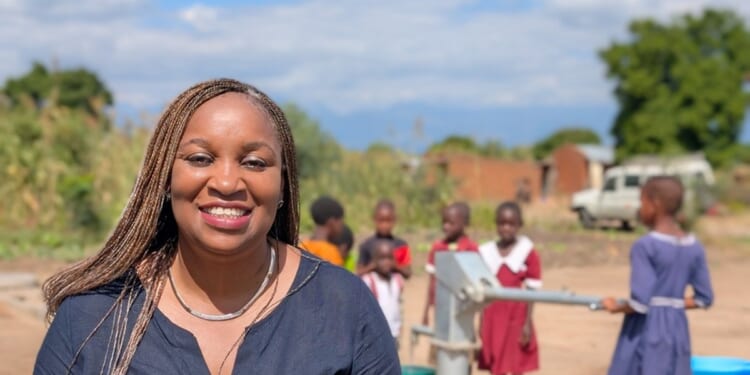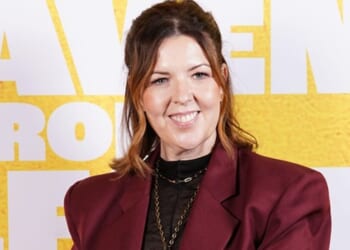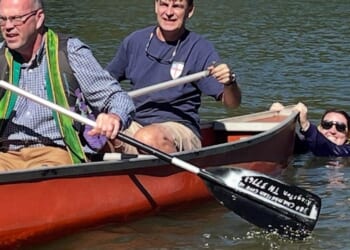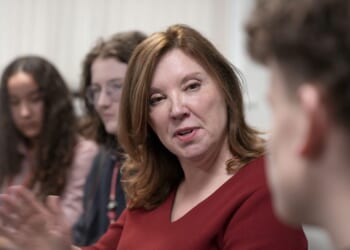IN THE wake of anti-immigration protests and a policy announcement from the Conservative Party Conference of an intention, if in government, to cut overseas aid to 0.1 per cent, an aid-agency chief executive has spoken of the British public’s generosity and her pride in the UK’s history of welcoming refugees.
The CEO of the agency World Vision UK, Fola Komolafe, said: “I am so proud of what we did when the Afghans came in in that time of crisis. I am so proud of what we did when the Ukraine crisis hit, and people opened up their homes here. . . That is what makes us good — really good — and compassionate and empathetic and caring, and I want us to continue to be like that.”
Appointed two years ago, she said that current humanitarian crises had created needs “so much greater than they have ever been in my lifetime”. The cut in the overseas aid budget to 0.3 per cent of GDP had had its parallels elsewhere. Many countries were facing serious economic problems, which resulted in a greater focus on domestic affairs: “rightfully so, because it’s all taxpayers’ money”.
The challenge was to balance this with “the greater call that we have to be global citizens in the world. . . The right thing is to care, to think about other people outside of ourselves, to give and to want to do that with great generosity to impact someone else’s future. Because there is a joy and sense of purpose and fulfilment that comes from doing the right thing.”
The NGO sector had “really [to] think about how we can be more creative, more innovative. . . We have always delivered value for money, we have’ always worked on efficiency, made sure we remit as much of the pound to the field, but even that is being challenged,” said Ms Komolafe, who has worked for HSCB and IBM and was CEO of a management consultancy.
The cutting of 60 posts, World Vision UK’s second restructuring within a year, was announced last month. Tearfund (News, 28 June 2024) and Christian Aid (News, 2 May) have also announced cutbacks. In July, 43 CEOs in the aid sector warned that it was undergoing a “dramatic contraction and change . . . driven by shrinking funding and fundamental questions about our sector’s legitimacy”.
Between 2020 and 2024, World Vision UK’s income from government grants grew by almost two-thirds to £27.6 million, but donations fell by more than 40 per cent, to £38.6 million.
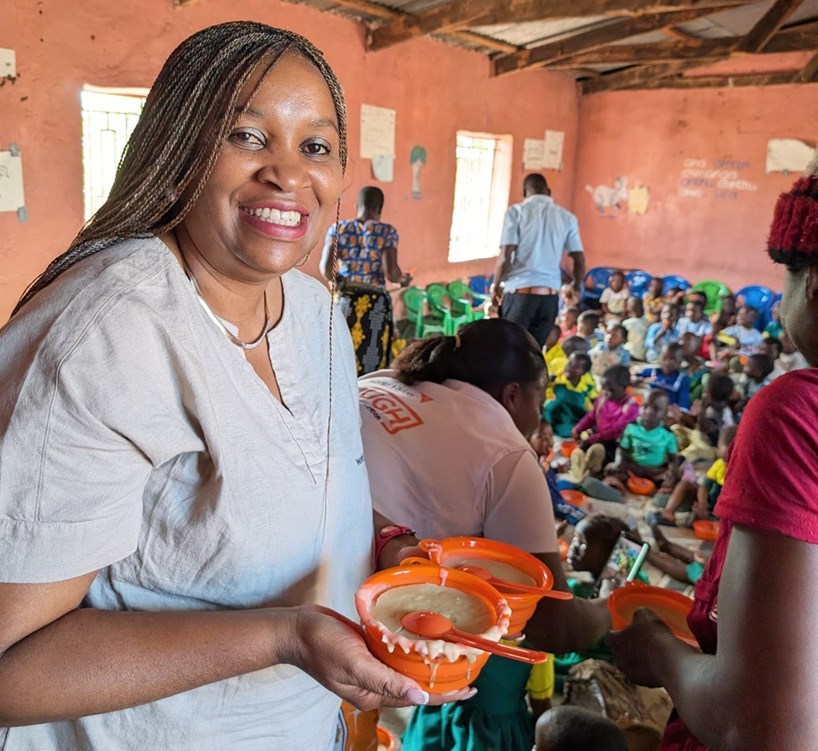 WORLD VISIONFola Komolafe at a nursery school in Malawi, where World Vision funds school meals
WORLD VISIONFola Komolafe at a nursery school in Malawi, where World Vision funds school meals
In her introduction to the charity’s 2024 annual report, Ms Komolafe refers to an “ambitious five-year change programme to transform World Vision UK into a more efficient and effective organisation”.
The chair, Douglas Millican, writes that implementing this is “hard as we change well-established ways of working to reduce our operating costs and increase the funds available to support children”. In 2024, the charity, which has a special emphasis on children’s welfare, reached more three million people directly in 181 projects in 37 countries, the report says.
The latest restructuring — triggered mainly by the cut in the ODA budget — had been a “very painful process”, Ms Komolafe said. Help had been given to those made redundant to find positions in other organisations, within and beyond the sector.
A YouGov poll in March suggested that 65 per cent of British people favoured increasing defence spending at the expense of overseas aid. But Ms Komolafe pointed to the large sums donated to DEC appeals as evidence of the public’s generosity. Many of the big issues facing the Government, including migration, had their roots in global challenges, she said.
The former Chief of Defence Staff, Lord Richards of Herstmonceux, warned in The Times last week that a further aid cut would be a “profound strategic error that endangers our national security”.
In private-sector positions, Ms Komolafe had been “usually the only female in the room, and usually the only black person in the room”, she recalled. “I love it. I love being female, and I love being black.” It had given her a “unique perspective” in her current post.
“When I travel, for example, and I go to the field, there is a unique connection that I feel with every child and every family and every community because they look like me, most times, and I look like them, most times. There is already a difference in how they connect and how they relate to me.
“I am from Nigeria. I have seen poverty: I know what poverty looks like. I understand it from a deeper perspective, perhaps that helps deepen the conversations that I am having.”
Asked about the anti-racism statement signed in July by the chief executives of 43 other NGOs, she said: “We can never become complacent. I would worry if as a sector we ever got to that place where we thought we’ve solved that problem.”
She drew attention to World Vision’s ethical-storytelling project, which considered “How do we accurately represent the voice of those we are called to serve?”
Almost all of the charity’s 33,000 employees were locals, accountable to local boards making their own decisions, she said. “My job is to raise money, not to make the decisions for them. We are equal partners together.”

